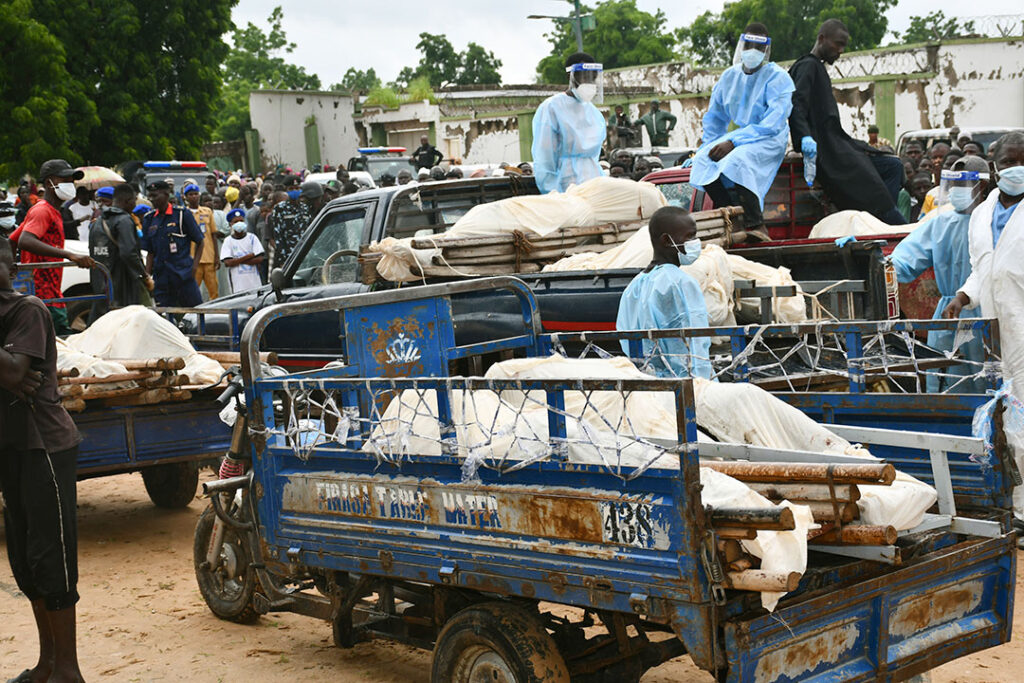A Boko Haram faction operating in the forested communities of north-central Nigeria’s Niger State is gaining notoriety for its barbaric tactics, attacks on infrastructure, cattle rustling and ability to mix with bandits.
Jama’atu Ahlis Sunna Lidda’awati wal-Jihad (JAS) — or “People Committed to the Propagation of the Prophet’s Teachings and Jihad” — has long terrorized communities in and around the Niger State community of Shiroro, which is 128 kilometers northwest of Abuja, the national capital.
In June 2024, the group killed 20 young men, beheading 10 of them, in an attack on a Shiroro village. Residents were forced to hold the severed heads as the terrorists took pictures and shot video. In July 2022, at least 30 Nigerian Soldiers were killed in an ambush after the terrorists attacked a mine in Shiroro. A local leader told Reuters that the terrorists also killed seven police officers and eight civilians and abducted several Chinese workers.
About 5,000 Shiroro residents were displaced by violence over a three-day period in 2021. At the time, Sen. Mohammed Sani Musa, representing Niger East in the National Assembly, referred to the group as “heartless, venomous and hydraheaded” terrorists.
In Shiroro, JAS kidnaps women and girls to be gang-raped and forced into marriage with its fighters. It recruits boys into its fold and brainwashes them into killing in the name of religion. JAS is known to extort money from those it views as unbelievers.
However, JAS thrives on ideological fluidity and predation, unlike the doctrinal and tighter command discipline of rival Boko Haram faction Islamic State West Africa Province (ISWAP), according to Taiwo Adebayo, a Lake Chad Basin researcher at the Institute for Security Studies (ISS). This flexibility has facilitated its entrenchment in Niger State.
JAS is led by Abubakar Saidu, or “Sadiku,” a Borno State native sent to Niger State in 2014 by late Boko Haram leader Abubakar Shekau. Sadiku gradually embedded himself in the Alawa Forest Reserve area and began coordinating with local Fulani communities. By 2021, Boko Haram had hoisted its flag in the Shiroro community of Kawuri. Under Sadiku, JAS has blended jihadism with local Fulani banditry. Despite the group’s rigid religious principles, it tolerates the bandits’ use of alcohol, drugs and prostitution.
“By tolerating the bandits’ non-adherence to its strict religious code, JAS benefits from their weapons, fighters and knowledge of the local terrain, enabling the group to gain a strategic foothold in Central Nigeria,” Adebayo wrote for the ISS.
Unlike traditional Boko Haram command systems, the JAS around Shiroro is run by warlords or strongmen. The cell is based in forest communities, such as Dogon Fili, Kugu and Maganda, to avoid detection by Nigeria’s largely aerial military campaign. The military’s ground resources withdrew after repeated, deadly attacks.
From these outposts, the group routinely attacks security forces and civilians in villages, towns and on roads in Shiroro, and in the Munya and Rafi local government areas. It has killed hundreds and planted numerous improvised explosive devices. More than 42,000 people in Shiroro, Munya and Rafi, mostly women and children, have been displaced by banditry and terrorist attacks, according to Nigerian online news site This Day Live.
“Geography amplifies the Shiroro threat,” Adebayo wrote. “Niger State connects north and south Nigeria and borders Benin through porous forest corridors linking to the Sahel. Arrests in July of Boko Haram-linked women heading to the Borgu axis suggest the cell is eyeing broader expansion.” The Borgu axis is a region between northwestern Nigeria and northeastern Benin.
Bakura Doro, a key JAS commander, supplies weapons to Shiroro from his base on Lake Chad’s Barwa Island. JAS’s stockpile is complemented by weapons seized from security forces or trafficked through Sahelian smuggling networks via the group’s bandit affiliations.
JAS does not confine its operations to Shiroro or Niger State. On September 5, the group killed at least 60 people in a late-night attack on the Darul Jamal community in Borno State. Most of the victims were residents who had recently returned to the area after being displaced by earlier waves of violence.
“I have lost close family friends in this attack,” resident Kaana Ali told The Voice of Africa. “Although the governor is urging us to remain, I fear for my safety.”

